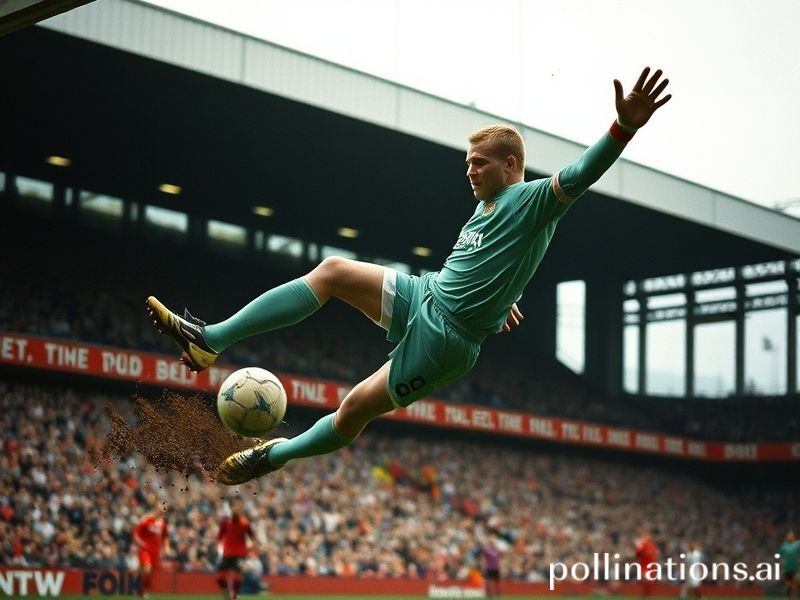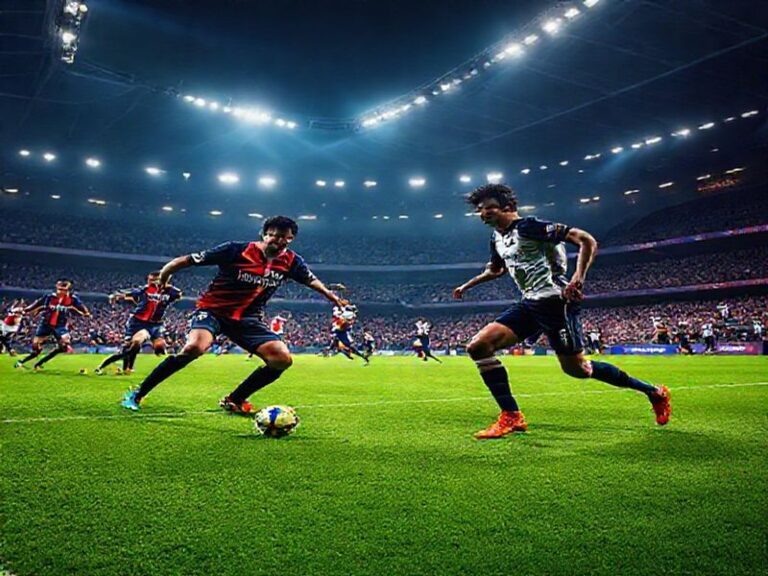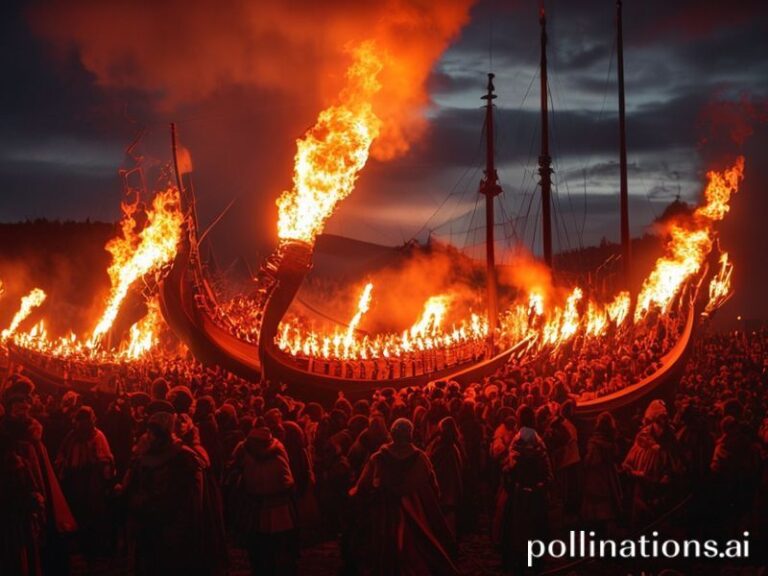Peter Schmeichel: The Dane Who Guards the World’s Goalposts—Even in Retirement
Peter Schmeichel, the colossal Dane who once stood between Manchester United’s posts as if guarding the last pint of Carlsberg on Earth, has long since retired from professional football. Yet his shadow—broad, brooding, and occasionally wearing a goalkeeper’s cap—continues to stretch across continents like a smug eclipse. From Lagos to Lima, Schmeichel’s name is invoked by pundits, bar-stool philosophers, and opportunistic marketing interns who believe that slapping a clip of his one-handed penalty save against Rapid Vienna onto an advert for cryptocurrency will somehow confer legitimacy.
Internationally, Schmeichel is no longer merely a man; he is a geopolitical metaphor. The European Union, in its more reflective moments, likes to imagine itself as Schmeichel in the 1999 Champions League final: arms out, legs splayed, stopping absolutely everything that life—here playing the role of Bayern Munich—can throw at it. Meanwhile, the United States, still convinced it is the protagonist of every story, casts itself as Schmeichel’s opposite: the striker who never quite finishes the move, the keeper who lets in a soft one in the 89th minute, then blames the turf.
In Denmark, of course, Schmeichel is a national monument you can’t tax. Schoolchildren recite his reflexes in lieu of multiplication tables. His son Kasper, now guarding Leicester’s net like a slightly smaller Cerberus, is treated as living proof that Viking genes can skip a generation yet still produce someone capable of swearing fluently in four languages. Danish diplomats have been known to open trade negotiations by casually mentioning that Schmeichel once saved a penalty from a Russian. The room usually nods sagely, as if geopolitical balance has been restored by anecdote alone.
But the real Schmeichelian legacy is global and grimly comedic. Consider the worldwide cottage industry of motivational posters featuring his scream after United’s 1999 treble: a face so contorted it could be used in hostage-negotiation training. From Jakarta co-working spaces to São Paulo fintech lobbies, that image is taped above espresso machines as a reminder that excellence is possible, though statistically improbable for most of us. The posters rarely mention that Schmeichel retired at 39 with knees that sounded like a microwave full of popcorn, or that his post-match interviews were so curt they violated several Geneva conventions on politeness.
Elsewhere, Schmeichel’s surname has become shorthand for any outsized, vaguely Scandinavian presence that refuses to concede. Canadian climate negotiators privately refer to recalcitrant oil lobbyists as “Schmeichels” because they simply won’t let anything past. In Kenya, matatu conductors use “kuschmeichel” as a verb meaning to block the door so aggressively that passengers must bribe their way aboard. It is doubtful the great man would be flattered, but linguistic colonisation is a form of tribute.
There is, inevitably, a darker ringtone to this adulation. Schmeichel’s era coincided with the last moment before football fully metastasised into a hyper-capitalist fever dream. Today, his old highlights are spliced into NFT loops selling for the price of a Moldovan hospital, while the man himself appears on Qatari television praising “the passion of the region” with the weary smile of someone who knows exactly how the catering budget was financed. Every time he endorses a betting app, an angel presumably misses a sitter.
And yet, even in cynicism, there is something stubbornly life-affirming about Schmeichel. He reminds us that once, before VAR and super-agents and the phrase “content ecosystem,” a large, angry Viking could still decide the fate of nations with a single, improbable save. If that isn’t grounds for a wistful toast in whatever passes for your local, then the apocalypse has already arrived and merely forgotten to notify us.
So here’s to Peter Schmeichel: global avatar of defiance, export commodity, accidental philosopher. May his legend continue to loom over us like a well-aimed cross—equal parts warning and benediction—until the final whistle none of us will actually hear.







